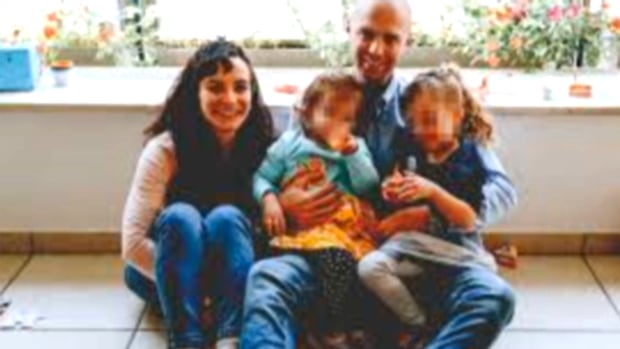
TIFF pulls documentary about Oct. 7 attack from lineup over security and rights concerns
Published: 2025-08-13 23:27:01 | Views: 9
The Toronto International Film Festival has pulled from its lineup a documentary detailing one family's experiences of the Oct. 7, 2023 attack by Hamas over footage rights and security issues, according to multiple news outlets.
In an emailed statement, the filmmaking team behind the documentary The Road Between Us: The Ultimate Rescue, acknowledged the cancellation and told CBC News that they were "shocked and saddened" by the festival's decision.
"Ultimately, film is an art form that stimulates debate from every perspective that can both entertain us and make us uncomfortable. A film festival lays out the feast and the audience decides what they will or won't see," the statement said.
"We are not political filmmakers, nor are we activists; we are storytellers. We remain defiant, we will release the film, and we invite audiences, broadcasters, and streamers to make up their own mind, once they have seen it."
The film, by Canadian director Barry Avrich, tells the story of Noam Tibon, a retired IDF general who is on a quest to save his son and his family during the attack that sparked the nearly two year long war between Israel and Hamas.
Tibon's story has been told before in the media, including on CBS's 60 Minutes. His son, Amir Tibon, who is a journalist, also recounted the events from his own perspective in a book.
According to Deadline, which was first to report the news, TIFF withdrew its invitation for the film to participate in the festival in part because some requirements for inclusion were not met, including the "legal clearance of all footage."
"The purpose of the requested conditions was to protect TIFF from legal implications and to allow TIFF to manage and mitigate anticipated and known risks around the screening of a film about highly sensitive subject matter, including potential threat of significant disruption," the festival said in a statement to The Associated Press and Deadline.
The ultimate dis-invitation, according to Deadline, came over the legal clearance and identification of footage of the attack that was filmed by Hamas.
CBC News made multiple requests to TIFF for comment on Wednesday, but the festival did not respond.
Groups condemn decision
The move has drawn condemnation from a number of organizations and officials.
Creative Community for Peace, an entertainment industry organization that educates about antisemitism, called the decision to pull the film "deeply disturbing."
"They are choosing to censor a Jewish story of survival and attempting to erase the experiences of survivors of the worst attack on Jews since the Holocaust," the statement read in part. "This decision is part of a growing trend of silencing Jewish and Israeli voices under the excuse of 'security concerns.' "
The Centre for Israel and Jewish Affairs' CEO, Noah Shack, also decried the decision, which he saw as the festival bending to the prospect of protests.

"This shameful decision sends an unmistakable message: Toronto's Jewish community, which has long played an integral role at TIFF, is no longer safe or welcome," he said in a statement.
Israel's Minister of Foreign Affairs, Gideon Sa'ar, also called the decision "vicious and sickening" in a post on X. And Stan Cho, Ontario's Minister of Tourism, Culture and Gaming, said in a statement posted to social media that he believed freedom of expression is "integral to the arts."
TIFF pulled another documentary last year
The festival also drew controversy last year over its decision to run — then pull — a documentary that followed Russian soldiers fighting in the war against Ukraine.
The film, called Russians At War by Russian-Canadian director Anastasia Trofimova, attracted protesters who called the film Russian propaganda. After the festival paused screenings due to "significant threats," the film was quietly screened toward the end of the festival.

Russians At War follows soldiers and medics on the front lines of the war, something the filmmaker says she did without the government's permission, which puts her at risk of criminal prosecution.
Sean Farnel, a producer on the documentary who managed the film's distribution at festivals, told CBC News that the dis-invitation of The Road Between Us felt like "total deja vu," given what his team went through last year.
He says decisions like these are becoming "endemic" within the arts world, and that it's increasingly difficult for documentary filmmakers to secure funding to tell difficult or provocative stories.
"I think we all have to come together and figure out a way to present such work constructively, safely, because that's what festivals, that's what filmmakers do" Farnel said.
Front Burner‘Russians at War’ director talks critics and backlash
His team recently made Russians At War available directly to audiences through a website that he says gives the film context. He says he feels fortunate that filmmakers at least have the option of circumventing the usual distribution channels in this way to give people a chance to view their work in the event that festivals are unwilling or unable to present it.
Farnel says that before forming an opinion, people should see films being "censored or self censored" like Russians At War or The Road Between Us.
"Watch the film, have an open mind, challenge your own biases and perceptions, and communicate with each other."
Source link





